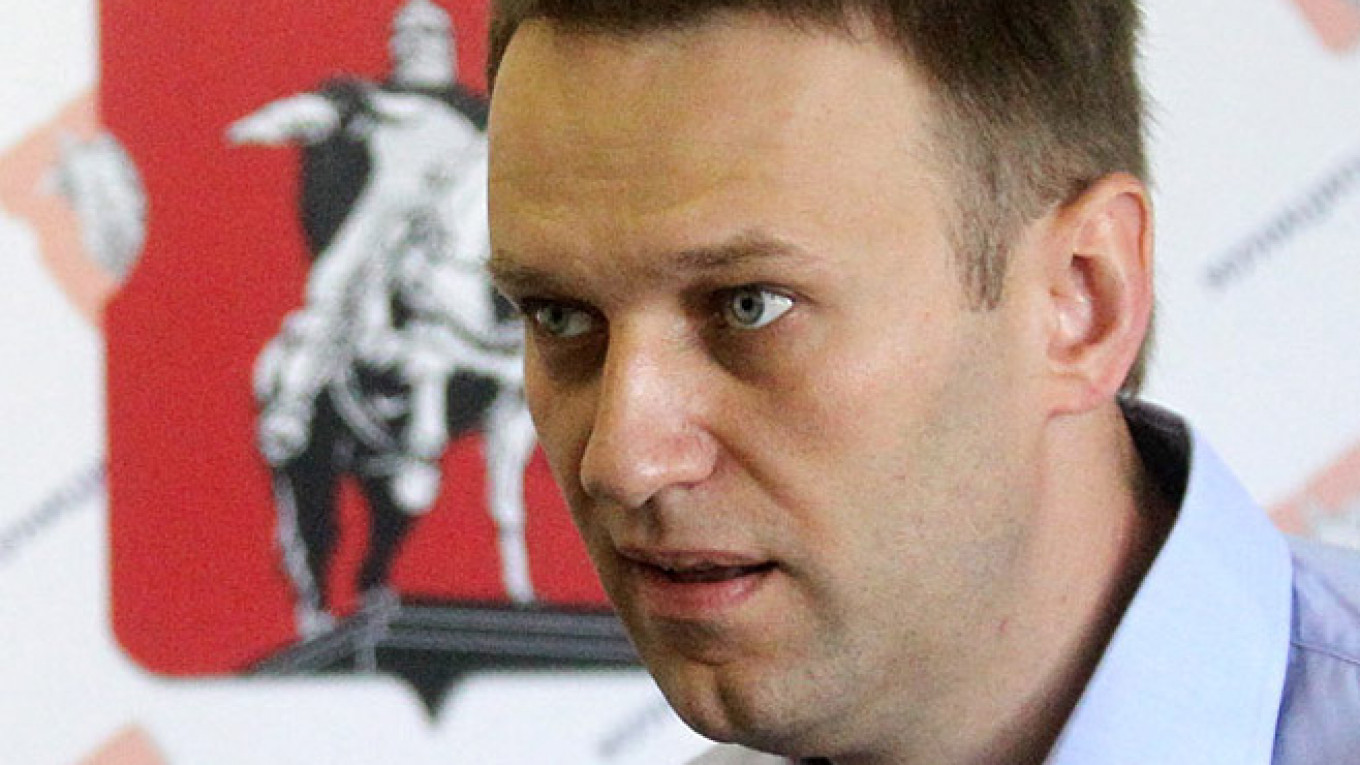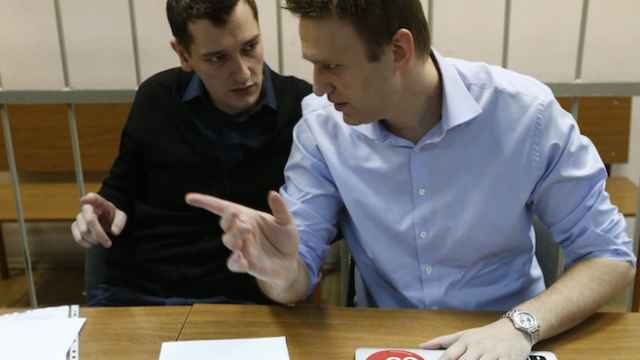Facebook complied with an official request to ban a page in support of Russia's leading opposition activist, triggering a wave of censorship allegations.
Prosecutors asked a judge on Friday to jail Alexei Navalny for a decade on financial charges that his supporters claim were fabricated in retribution for his scathing attacks on President Vladimir Putin and his inner circle.
A Facebook page was promptly set up calling for a rally in Navalny's support. More than 12,000 people said they were going as of Saturday, Interfax reported.
However, the Prosecutor General's Office was equally prompt in requesting the page to be blocked in Russia.
The ban was enforced on Saturday, a spokesman for the state media and Internet censorship watchdog, Roskomnadzor, told Interfax.
The page called for an “unsanctioned” rally, the spokesman said. Since last February, websites in Russia have been able to be blocked for such calls.
The rally was not unsanctioned in the sense of having been prohibited by authorities, as the organizers have not yet applied for a permit, prominent opposition lawyer Artyom Fayzulin wrote on Facebook on Sunday.
Though Russian censorship law is technically limited to Russia, the Russian watchdog also demanded that Ukrainian news website Gordonua.com kill a story about the rally, by threatening to ban the site in Russia.
Facebook has so far kept silent on the issue. A company spokesperson in Russia failed to return repeated requests for comment on Sunday.
The social network made a mistake that is “horrible precedent and bad for business,” former U.S. ambassador to Russia Michael McFaul wrote on his own Facebook page.
Facebook proved to be a crucial instrument in organizing protests during a wave of revolutions in North Africa and the Middle East between 2010 and 2012. However, authorities of affected countries had at the time preferred to block access to unwanted content themselves rather than have Facebook do it.
Navalny, a whistleblower who claims to have uncovered billions of dollars' worth of corruption among Putin's affiliates — though none of it has been confirmed in courts — emerged as the leader of large-scale anti-Kremlin protests that swept Moscow between 2011 and 2013.
He has since faced four criminal cases and three defamation lawsuits, and is under house arrest, though that has not stopped his activism.
Another, yet-unblocked Facebook page for a rally in his support had 14,000 followers as of Sunday afternoon.
Contact the author at a.eremenko@imedia.ru
A Message from The Moscow Times:
Dear readers,
We are facing unprecedented challenges. Russia's Prosecutor General's Office has designated The Moscow Times as an "undesirable" organization, criminalizing our work and putting our staff at risk of prosecution. This follows our earlier unjust labeling as a "foreign agent."
These actions are direct attempts to silence independent journalism in Russia. The authorities claim our work "discredits the decisions of the Russian leadership." We see things differently: we strive to provide accurate, unbiased reporting on Russia.
We, the journalists of The Moscow Times, refuse to be silenced. But to continue our work, we need your help.
Your support, no matter how small, makes a world of difference. If you can, please support us monthly starting from just $2. It's quick to set up, and every contribution makes a significant impact.
By supporting The Moscow Times, you're defending open, independent journalism in the face of repression. Thank you for standing with us.
Remind me later.







